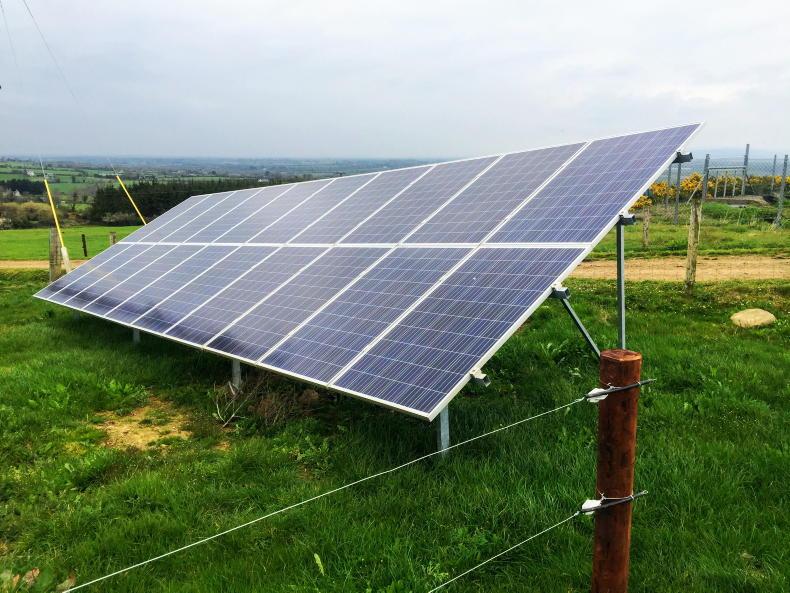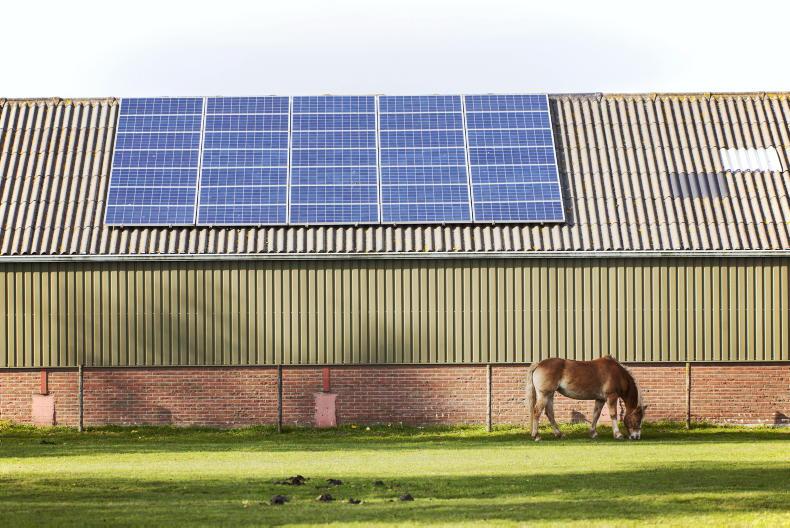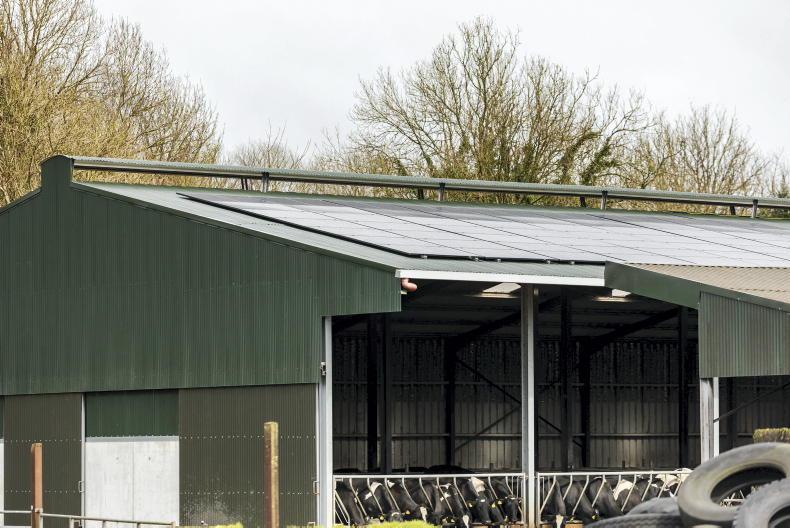A Micro-generation Support Scheme (MSS) launched by Minister for the Environment, Climate and Communications Eamon Ryan is set to benefit Irish farms, as well as homes and businesses.
The Government-supported scheme will enable farmers to install renewable electricity generation, such as solar panels and wind turbines, for their own on-farm consumption and receive a payment for any residual electricity they export back to the grid.
Cabinet backed Minister Ryan’s proposals for the scheme on Tuesday.
Farm micro-generation
Minister Ryan outlined the electricity micro-generation measures that will apply to Irish farmers.
Non-domestic scheme applicants including farmers will be eligible to receive a clean export guarantee (CEG) tariff for any exported electricity generated on-farm at a competitive market rate from their electricity supplier.
Farm micro-generation projects between 6kW and 50kW will receive a clean export premium (CEP) tariff per kWh exported, for a period of 15 years, from their electricity supplier.
The CEP will be €0.135/kWh in 2022, which is higher than the current average wholesale electricity price and is expected to be operational in quarter three of next year (Q3 2022).
Any difference between the CEP tariff and wholesale electricity prices will be supported by the public service obligation (PSO) levy.
Exported volumes of electricity eligible for the CEP tariff will be capped at 80% of generation capacity. This mechanism is designed to incentivise on-farm consumption.
Rural home-owners
Home owners engaging in electricity micro-generation will also be eligible to receive a CEG tariff for any exported electricity.
Home owners will continue to be able to apply to the Sustainable Energy Authority of Ireland (SEAI) for a grant towards the cost of installing equipment to initiate such micro-generation.
In 2022, the grants will be at the same level per kW as the current SEAI solar PV grant scheme, a maximum of €2,400.
Milestones
However, Minister Ryan flagged that supports to farmers under the MSS will gradually reduce over time from 2024, based on reaching specific “deployment milestones”.
He expects that supports for new installations will begin to be phased out from 2028.
He said the new framework will allow farmers to reduce their energy costs and contribute to carbon reduction targets.
The Green Party leader described the support scheme as “an important step on the energy transition journey”.
Read more
New solar energy pilot for farmers
A Micro-generation Support Scheme (MSS) launched by Minister for the Environment, Climate and Communications Eamon Ryan is set to benefit Irish farms, as well as homes and businesses.
The Government-supported scheme will enable farmers to install renewable electricity generation, such as solar panels and wind turbines, for their own on-farm consumption and receive a payment for any residual electricity they export back to the grid.
Cabinet backed Minister Ryan’s proposals for the scheme on Tuesday.
Farm micro-generation
Minister Ryan outlined the electricity micro-generation measures that will apply to Irish farmers.
Non-domestic scheme applicants including farmers will be eligible to receive a clean export guarantee (CEG) tariff for any exported electricity generated on-farm at a competitive market rate from their electricity supplier.
Farm micro-generation projects between 6kW and 50kW will receive a clean export premium (CEP) tariff per kWh exported, for a period of 15 years, from their electricity supplier.
The CEP will be €0.135/kWh in 2022, which is higher than the current average wholesale electricity price and is expected to be operational in quarter three of next year (Q3 2022).
Any difference between the CEP tariff and wholesale electricity prices will be supported by the public service obligation (PSO) levy.
Exported volumes of electricity eligible for the CEP tariff will be capped at 80% of generation capacity. This mechanism is designed to incentivise on-farm consumption.
Rural home-owners
Home owners engaging in electricity micro-generation will also be eligible to receive a CEG tariff for any exported electricity.
Home owners will continue to be able to apply to the Sustainable Energy Authority of Ireland (SEAI) for a grant towards the cost of installing equipment to initiate such micro-generation.
In 2022, the grants will be at the same level per kW as the current SEAI solar PV grant scheme, a maximum of €2,400.
Milestones
However, Minister Ryan flagged that supports to farmers under the MSS will gradually reduce over time from 2024, based on reaching specific “deployment milestones”.
He expects that supports for new installations will begin to be phased out from 2028.
He said the new framework will allow farmers to reduce their energy costs and contribute to carbon reduction targets.
The Green Party leader described the support scheme as “an important step on the energy transition journey”.
Read more
New solar energy pilot for farmers










SHARING OPTIONS